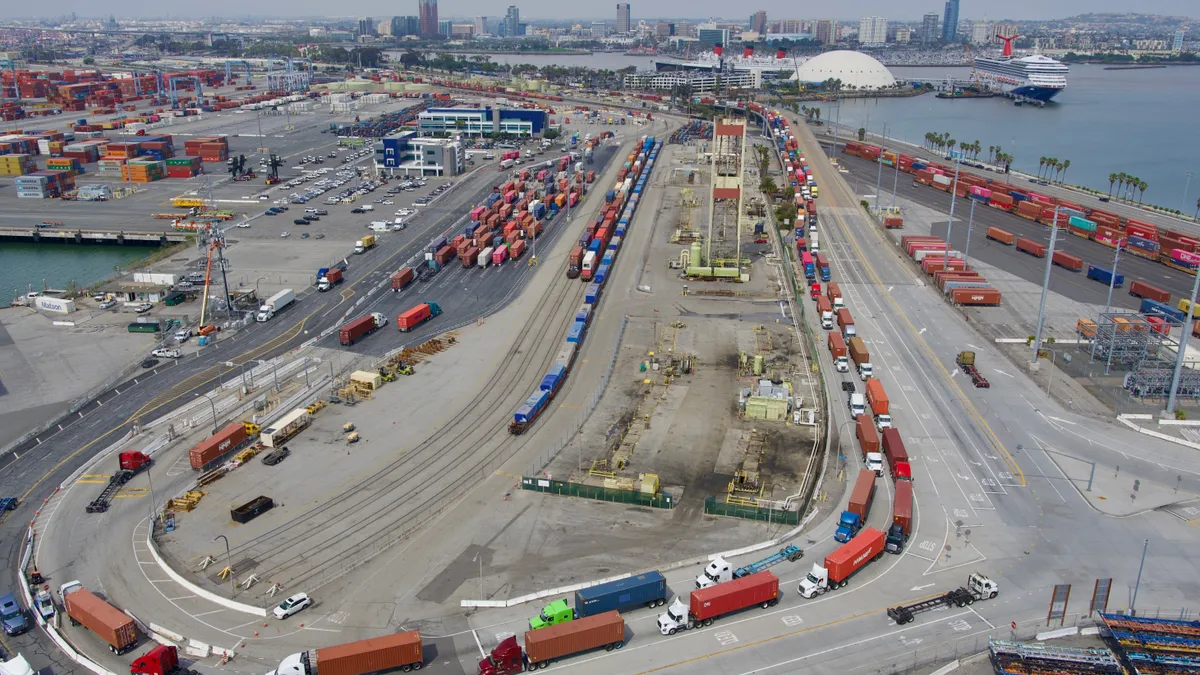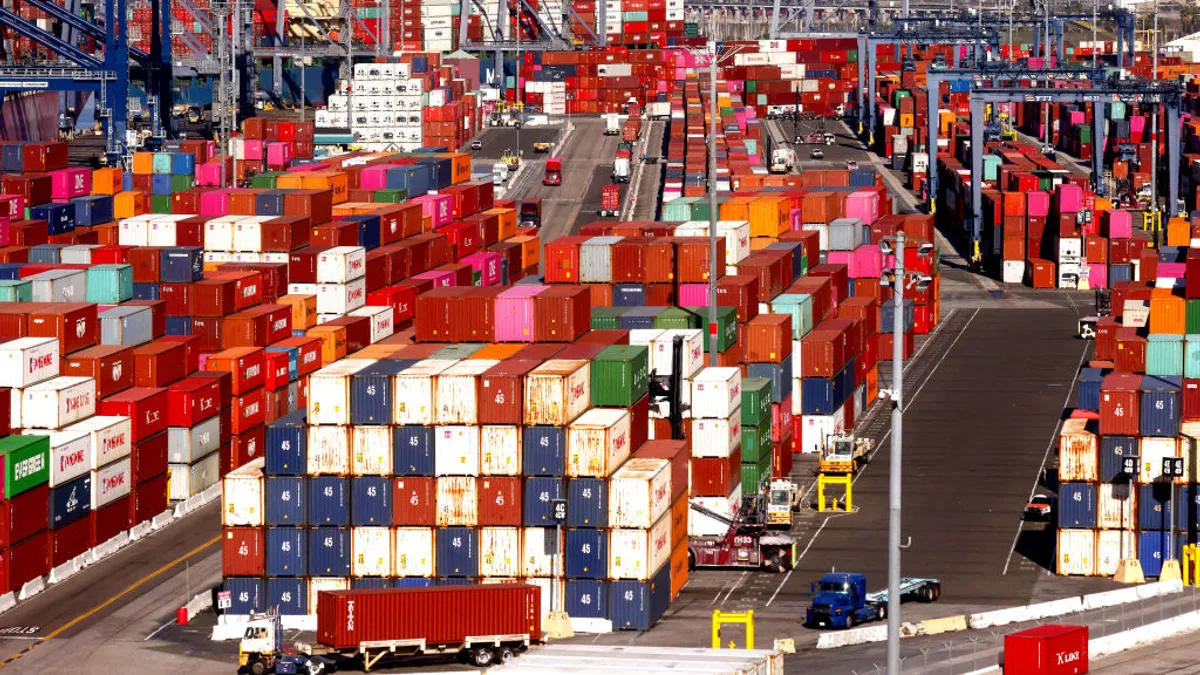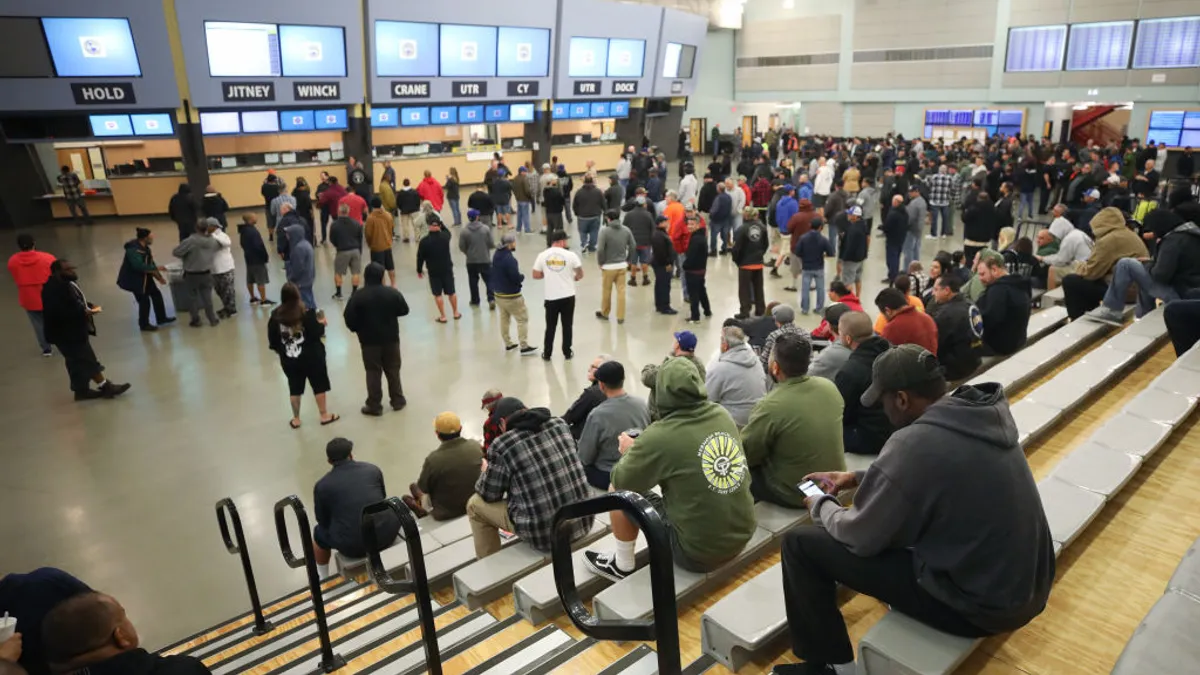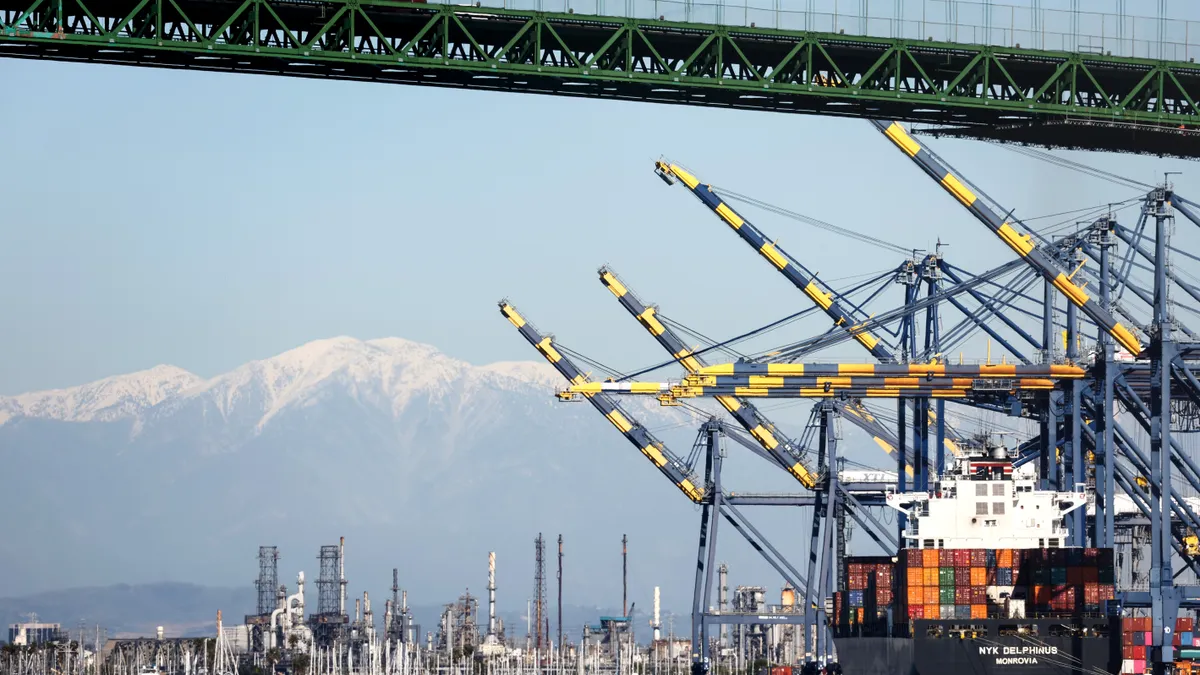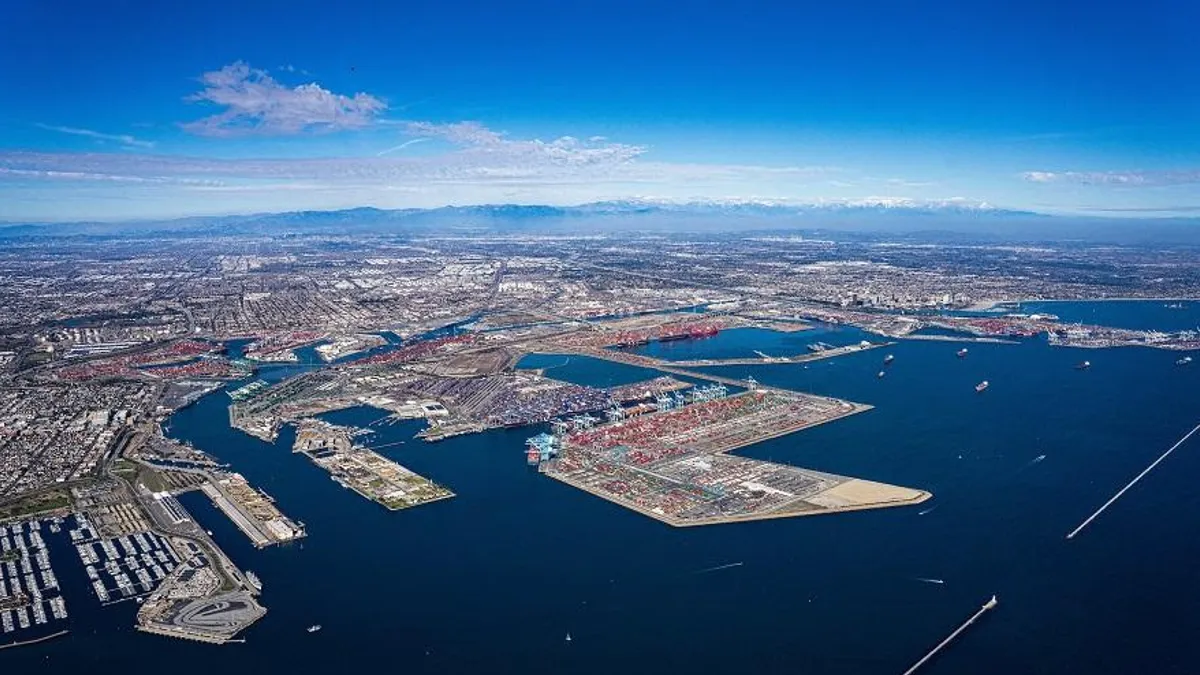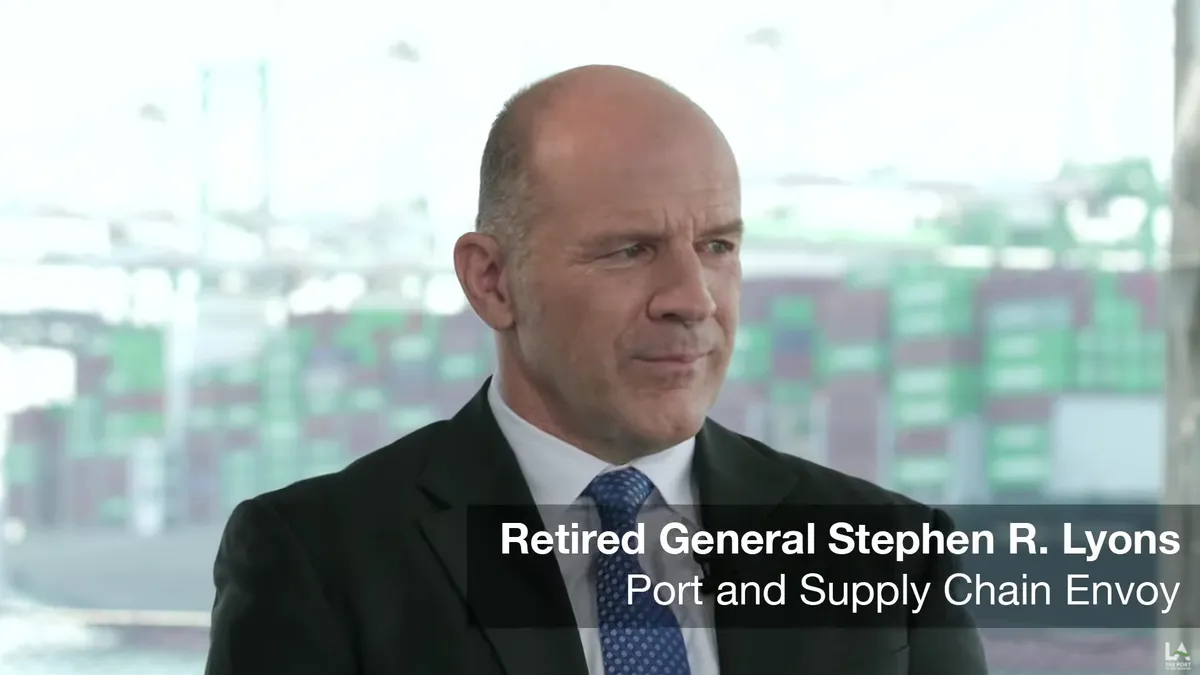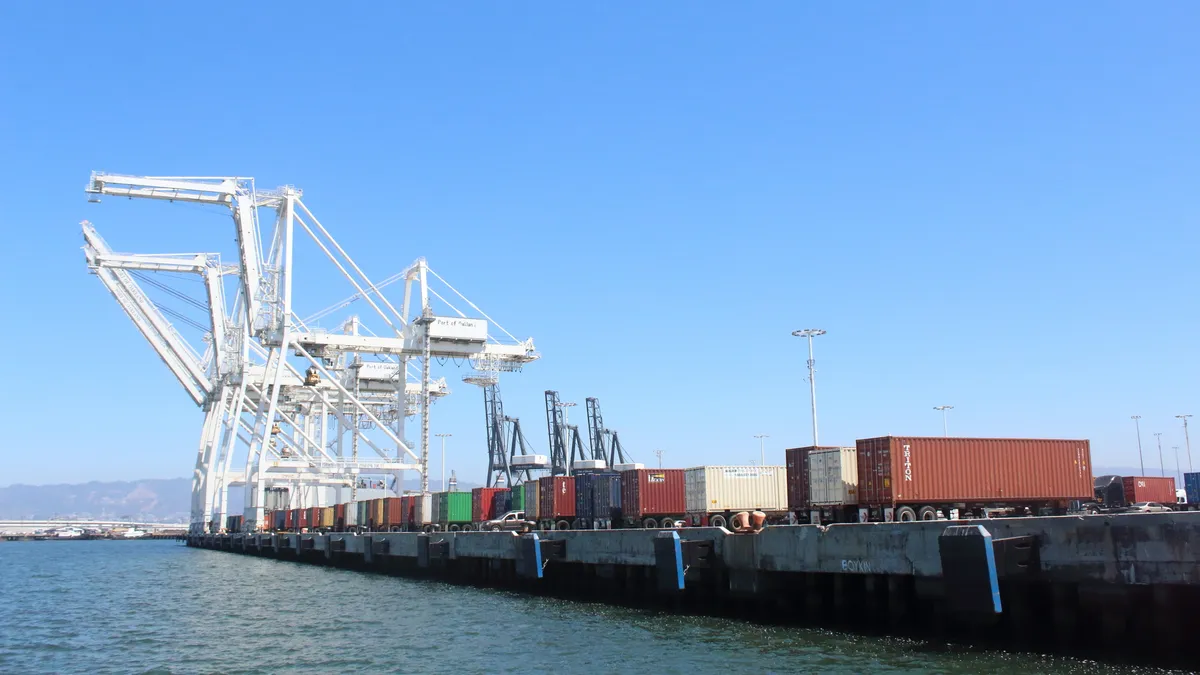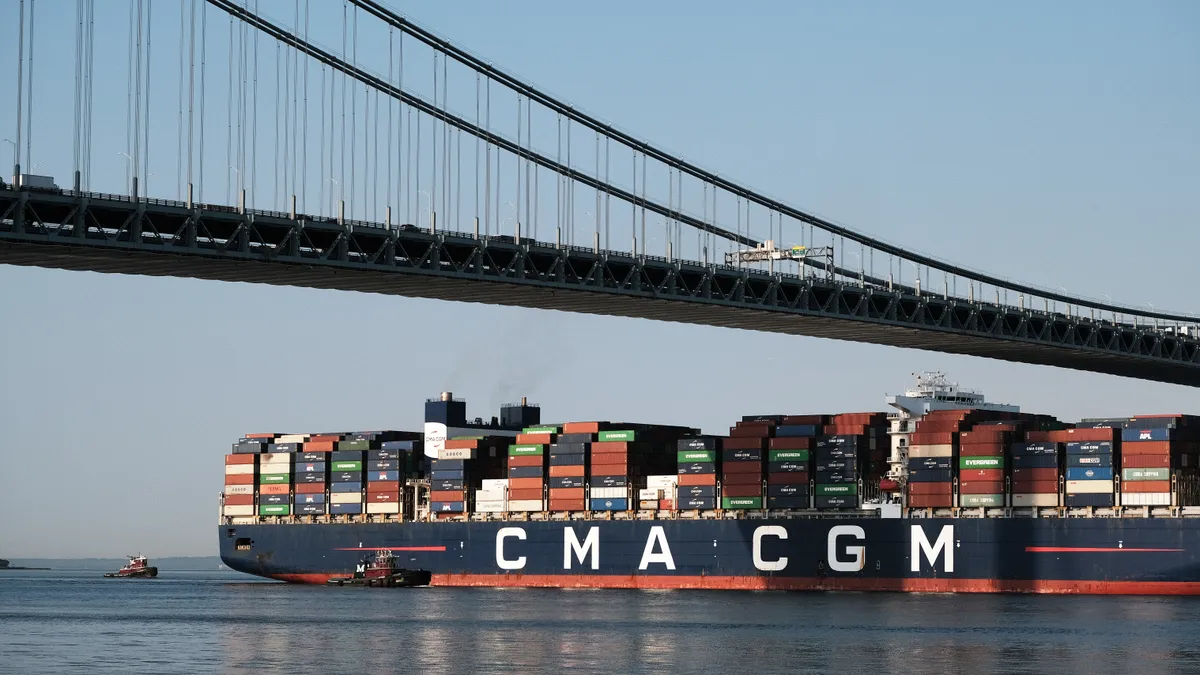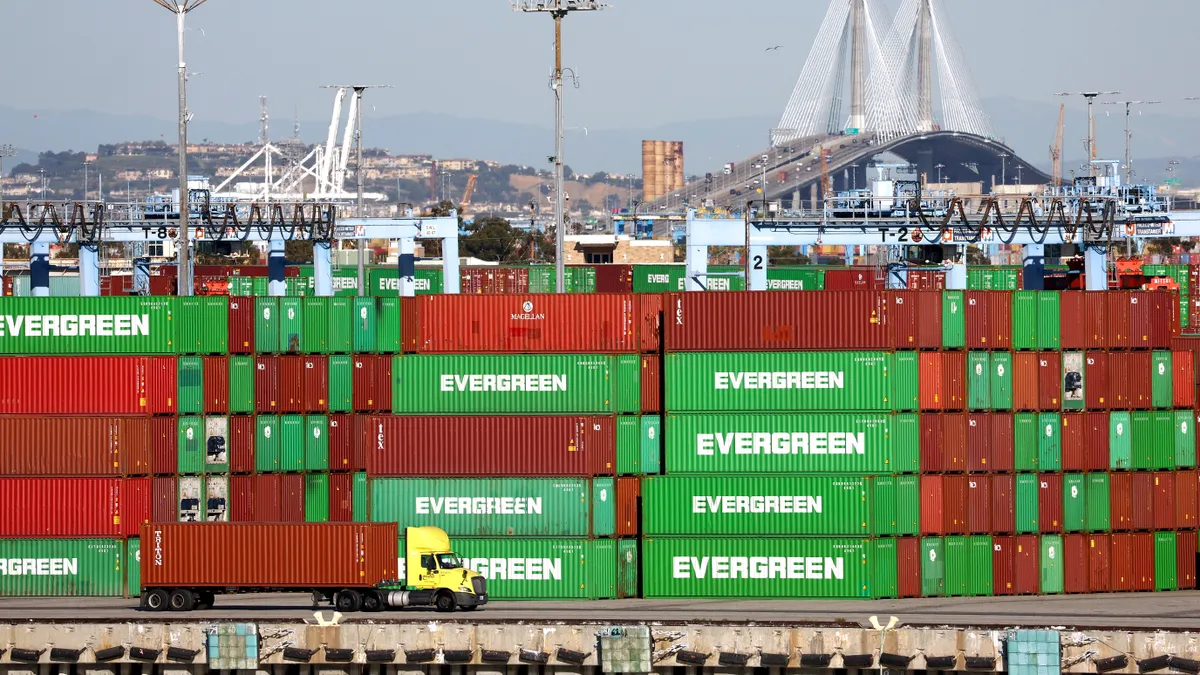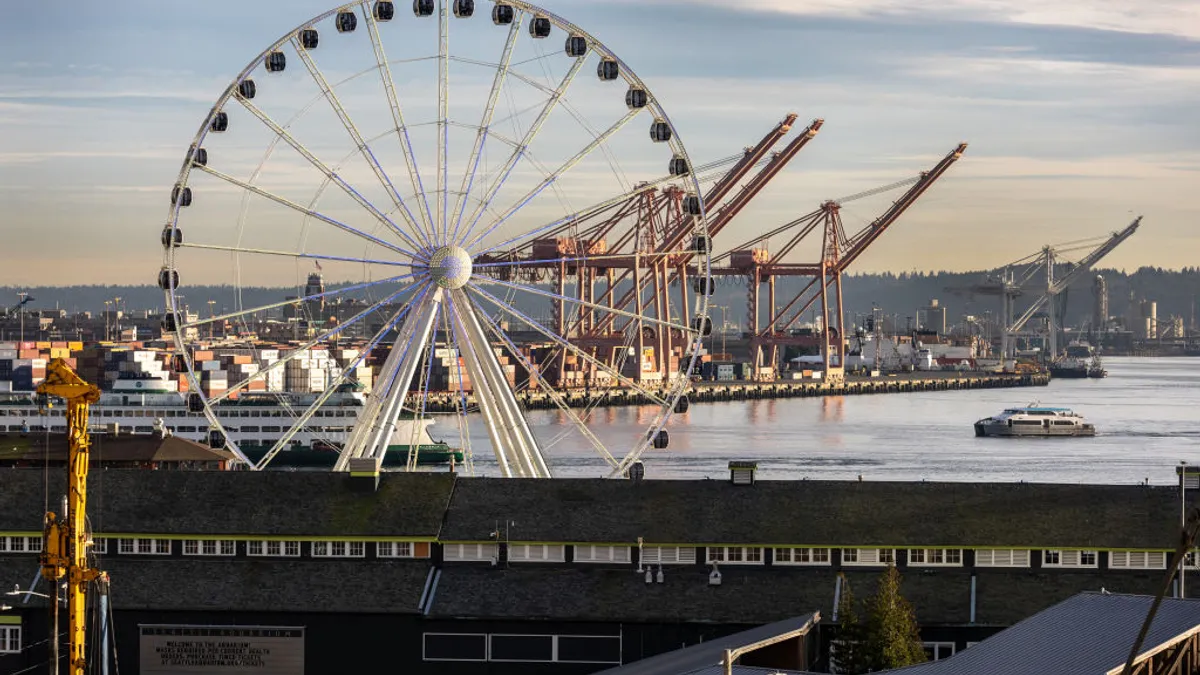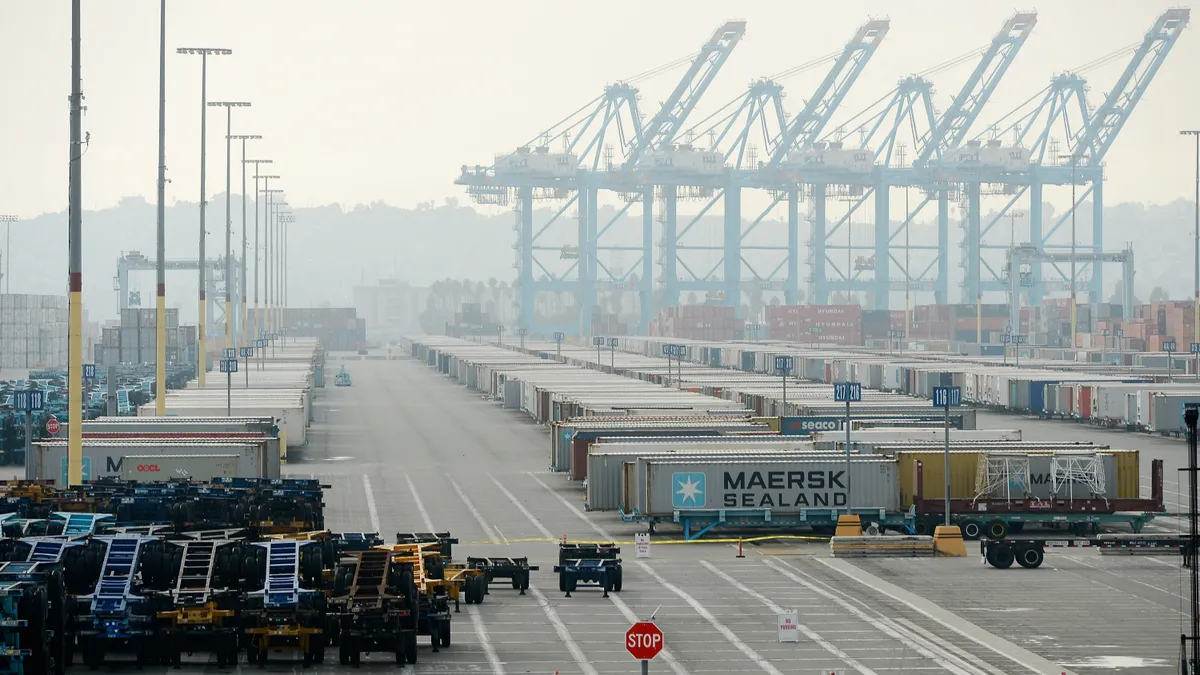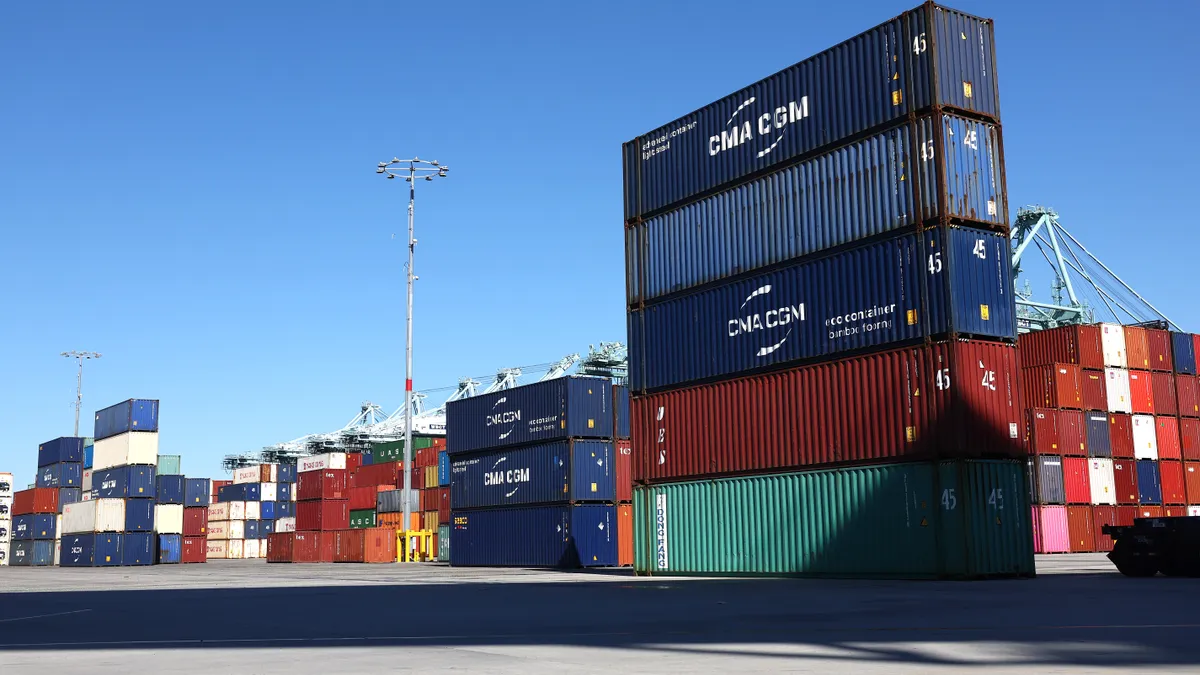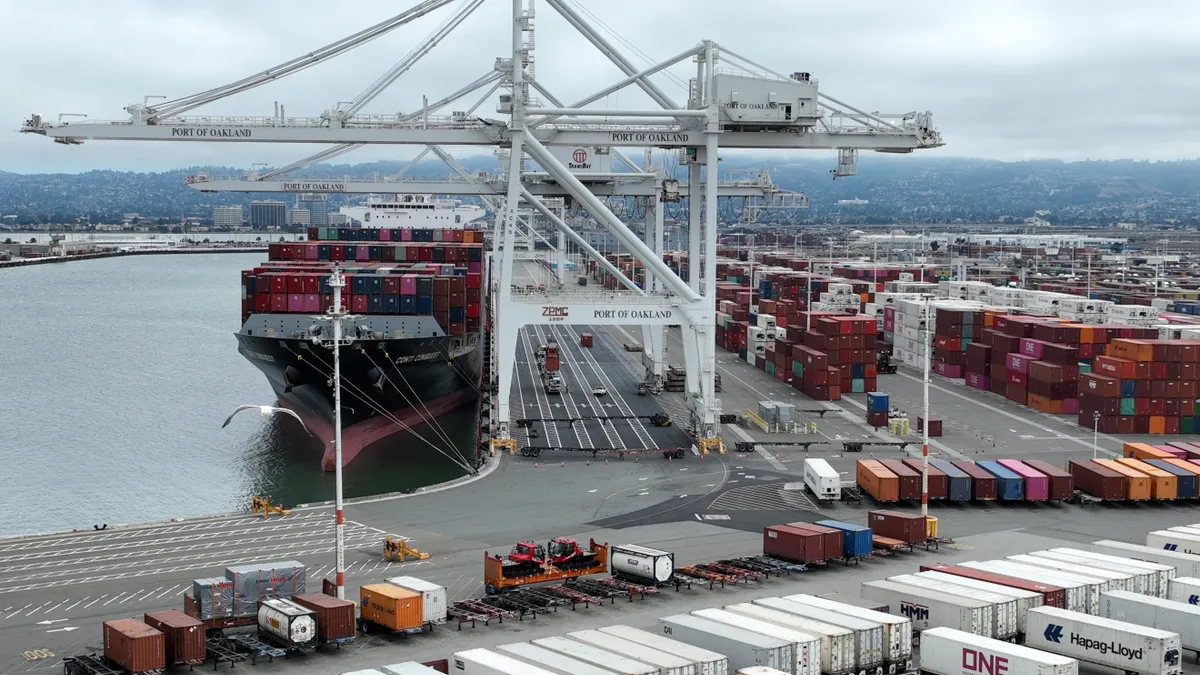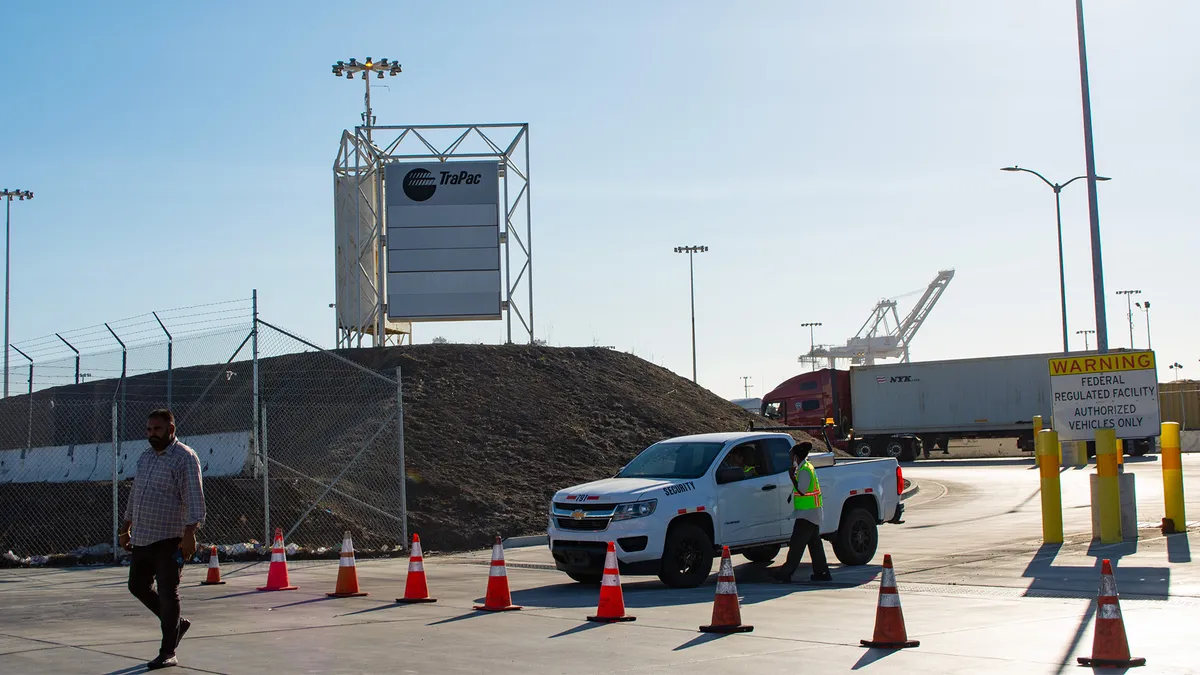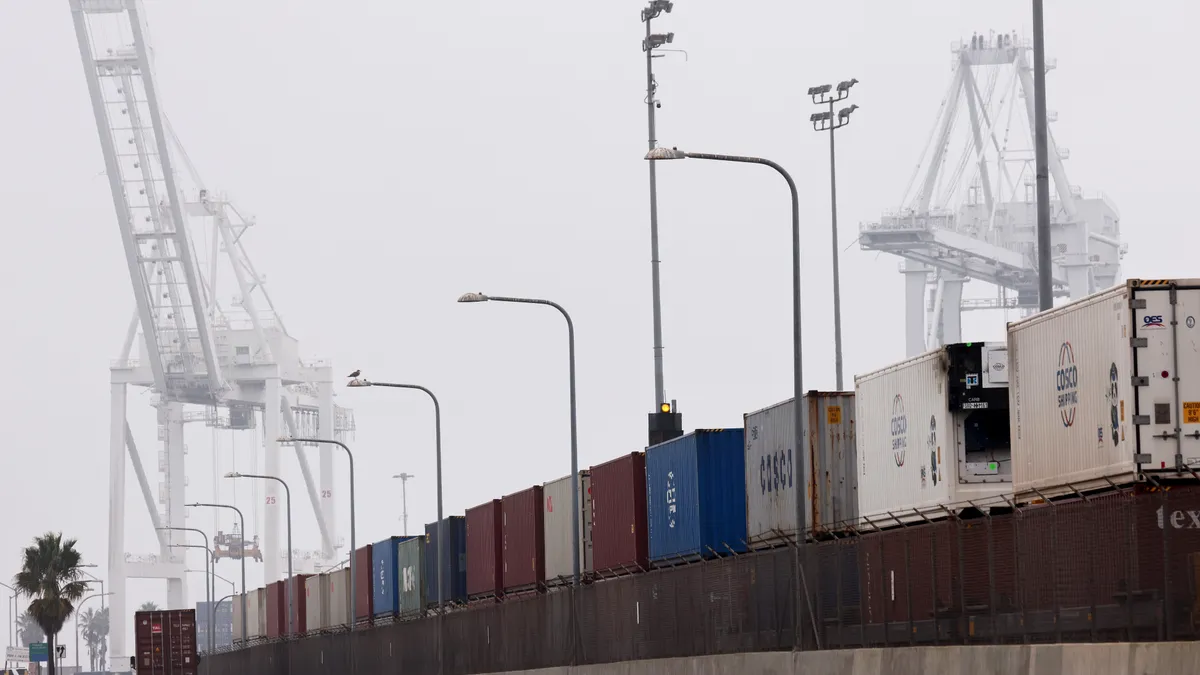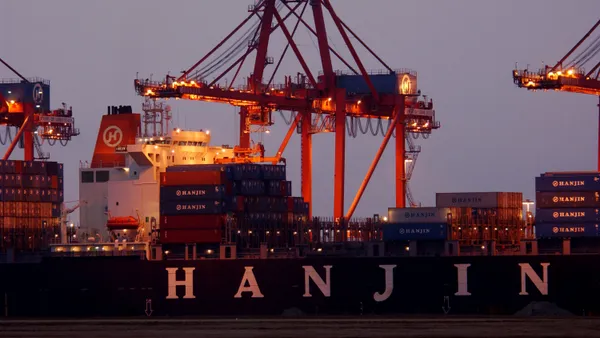A worker and employer dispute over lunch breaks has once again raised fears of port disruption, despite being limited to a chapter of the International Longshore and Warehouse Union.
ILWU Local 13 workers at the ports of Los Angeles and Long Beach are taking lunch break all at once, thereby limiting terminals’ ability to operate continuously, the Pacific Maritime Association said in a statement.
The group, which represents shipping lines and terminals that employ longshore labor, is one of the parties in the ongoing West Coast port labor contract talks that has shippers on edge since May 2022. Its counterpart in the coast-wide negotiations, the ILWU, said in a statement workers remain compliant with their contract.
Disputes over issues like lunch breaks can be led by local chapters, rather than the greater union, and therefore have little bearing on overall negotiations. Often, as was the case at the Port of Oakland in November, local chapter actions may even disrupt operations without the effects spreading to other ports.
While actions from ILWU Local 13, so far, have yet to have a broader impact, the lunch hour issue highlights how the lack of a longshore contract has left the door open for small disputes to raise national attention, alter shipper behavior, and escalate into targeted disruptions.
It’s not just about lunch breaks: ILWU Local 13 dispute involves port efficiency
On the surface, last week's issue at the ports of Los Angeles and Long Beach appears limited to lunch schedules.
In a statement, the PMA said that as of Wednesday, March 15, longshore workers at the two ports stopped accepting “staggered shifts” that would allow terminals to continue operating through lunch hours, instead taking their lunch break between 12 and 1 p.m. on the first shift, and 10 p.m. and 11 p.m. on the second shift.
But the issue is deeper than that, as PMA noted longshore workers’ decisions on shifts also affects broader port operations, and may be a breach of contract.
“The West Coast longshore contract provides employers the right to assign staggered shifts during meal periods to ensure labor is available at all times to deliver and receive containers. Beginning last week, ILWU Local 13 has stopped complying with that contract provision,” the statement reads.
Willie Adams, ILWU’s International President, responded directly to those claims in his own statement, saying: “The ILWU-PMA contract allows dockworkers to take a lunch break just like everyone else. Longshore workers in Los Angeles and Long Beach are working every day according to the terms agreed upon with the PMA.”
In its email to Supply Chain Dive, the PMA also shared three pictures of truck back ups at two terminals — Los Angeles’ Fenix Marine Services and Long Beach’s ITS Terminal — saying the long lines were caused by the longshore lunch break actions.
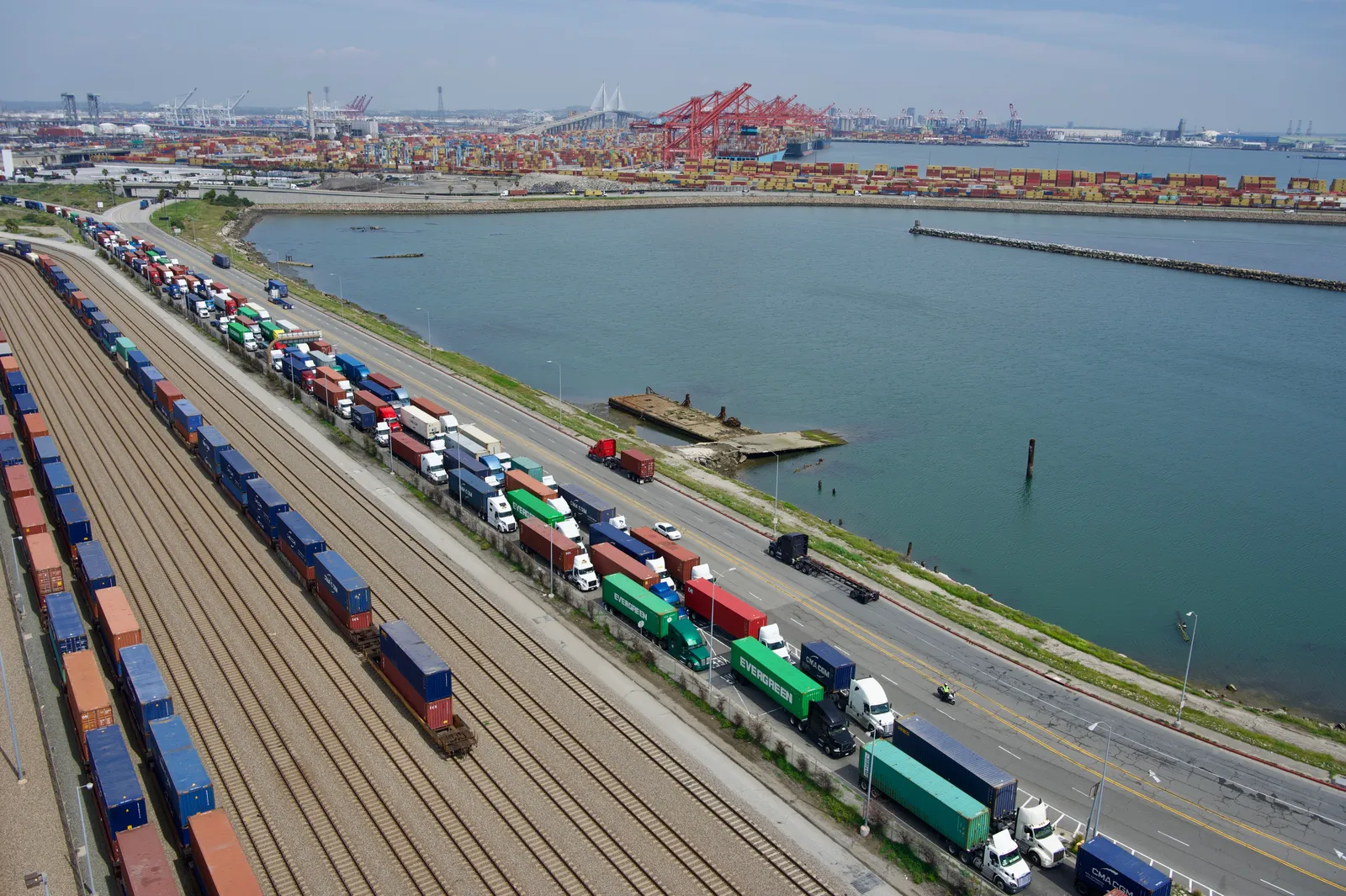
The ILWU cast a shadow on those claims, noting “trucks line up outside the terminal gates year-round for various reasons, but the employer highlights these lines during negotiations in an effort to influence public opinion.”
A Supply Chain Dive analysis of Port Optimizer data, which tracks truck turn times at Los Angeles and Long Beach terminals, found average monthly truck turn times at Fenix Marine Terminals did not fluctuate much, whereas the figure has inched up slightly for ITS Terminals since the lunch hour actions began March 15.
But Adams’ statement also put the responsibility for inefficiency back on terminal operators, saying they “open and close their gates at will, and limit their hours of operations when they are supposed to be open around the clock – 24/7.”
An expired contract makes environment more prone to disputes
The lunch hour dispute could potentially be resolved if the two parties had a contract, according to PMA.
“Because the contract is not in place, there is no option for PMA to arbitrate the matter and require the union to man the terminals continuously without interruption,” the statement reads.
Longshore workers and their employers had been working for years on the conditions set by a master contract that was put in place in 2014. When that contract expired without an extension in July 2022, so did the ability to resolve some disputes.
The lack of arbitration has been cited as an issue behind other disruptions in the past. When Oakland’s longshore clerks walked out of the job over wage claims last November, ILWU Local 34 President Sean Farley told SFGate the action had nothing to do with the negotiations for a master contract.
But absent a master contract they also could not take employers to arbitration. "It doesn't seem to get any better unless we directly confront the employers," Farley told SFGate at the time.
It's part of the reason why shippers, mindful of any logistics disruption, are diverting cargo away from West Coast ports. Without a contract, the threat of labor action looms large on the 29 ports covered by the ILWU-PMA talks.
“Many cargo owners want to see a labor deal before they bring more volume back here. So if we get a contract soon those importers will take notice,” Gene Seroka, executive director at the Port of Los Angeles, said in a media briefing Friday.
Negotiations to update the master contract, which started May 2022, are still ongoing both coast-wide and at the local chapter level. In February, the two sides issued a joint statement saying they hope a deal will come soon.
Editor's note: This story was first published in our Logistics Weekly newsletter. Sign up here.



